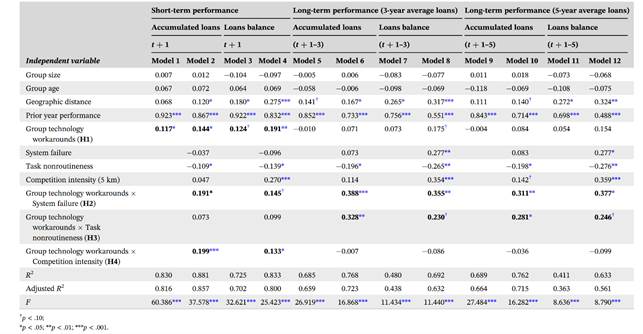It's crucial to focus on the technology workarounds
Despite the operational nature of enterprise system (ES) implementation and use, individual employees or work groups may deploy technology workarounds to circumvent inflexibility in or obstacles to using the ES. However, our understanding of the multilevel nature of technology workarounds and their performance implications remains limited.
Challenges in conceptualizing and measuring technology workarounds
An ES is inherently complex. Prior studies note many potential problems with ES, such as system changes; inappropriate designs; data inaccuracy; poor documentation; unreliability in operations, hardware, or software, as well as limited and unequally distributed individual and organizational resources; system degradation; constantly shifting work, social, and environmental situations; and misalignment among expertise, resources, norms, systems, and processes. Constant, appropriate, and timely problem identification, monitoring, maintenance, repair, and enhancement are unlikely. Problems and fixes may not be diagnosable, too expensive, not in the designer domain, or too local. Problems or obstacles represent or create inefficiencies of ES use that influence the organization's operational excellence, customer intimacy, or product leadership. As a result, “of interest is theory and empirical evidence regarding how alternate paths of technology implementation translate into operational outcomes” (Heim et al., 2021, p. 921).
Our main results
Drawing upon the multilevel theory of system usage and adaptive structuration theory, the current study
examines the conditions under which group technology workarounds affect group performance, individual technology workarounds, and individual performance. Based on two studies with different research designs, we find that group technology workarounds have distinctive effects on short- and on long-term group performance. Specifically, while the impact of group technology workarounds on group performance is significantly positive in the short term, such effect diminishes over time. System failure and competition intensity strengthen the positive effect of group technology workarounds on short-term performance, whereas system failure and task non-routineness lessen the negative effect of group technology workarounds on long-term performance. Our study further confirms the multilevel nature of technology workarounds, finding that group technology workarounds can influence individual technology workarounds and thereby individual performance. Our results support the view that technology workarounds as a group action should be considered
alongside individual technology workarounds, as well as their positive and negative effects on both group and individual performance, in both the short- and long-term.
 Table 1. Results of Regression Analyses
Table 1. Results of Regression Analyses
Our main contributions
First, our study provides a more nuanced understanding of the effects of group technology workarounds by differentiating short- and long-term performance. Our results show that the positive impact of group technology workarounds on short-term group performance vanishes in the long term. This finding confirms the temporal characteristics of technology workarounds and helps operations managers to better understand the implications of technology workarounds over time. Second, by exploring the moderating roles of the three contextual representatives of group-level system failure, task non-routineness, and competition intensity, our study finds that the impact of group technology workarounds on short- or long-term group performance can be either strengthened or weakened by these factors, which provides a more comprehensive understanding of the contexts under which performance implications of group technology workarounds vary over time. Third, by unraveling both group and individual-level technology workarounds, our study confirms and illuminates the multilevel nature of technology workarounds, which has received scant attention in the existing literature. Our results indicate that group technology workarounds can positively affect individual technology workarounds and subsequent individual performance.
The managerial implications
First, our study helps operations managers recognize the important (both positive and negative, short-term and long-term) roles of group technology workarounds in group operations and performance. Second, managers should note the contextual characteristics of technology (e.g., system failure), task (e.g., task non-routineness), and environment (e.g., competition intensity) when considering the short- or long-term performance implications of group technology workarounds. Third, this study can help managers realize that group technology workarounds and individual technology workarounds are two different yet interrelated practices, suggesting that managers may wish to take a more proactive role in group-level technology workarounds to influence the use and impacts of individual technology workarounds.
Article Information
Wei Shaobo, Chen Xiayu, Rice Ronald (2023) We can work it out: A multilevel examination of relationships among group and individual technology workarounds, and performance. Journal of Operations Management 69:1008-1038.